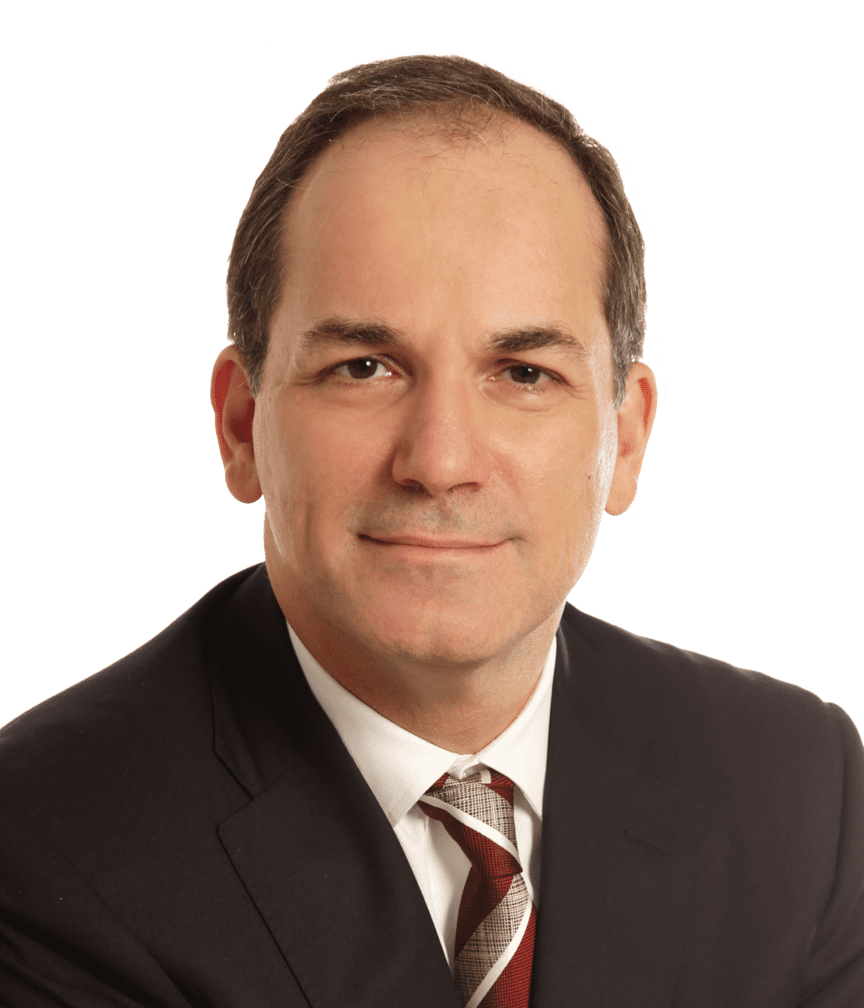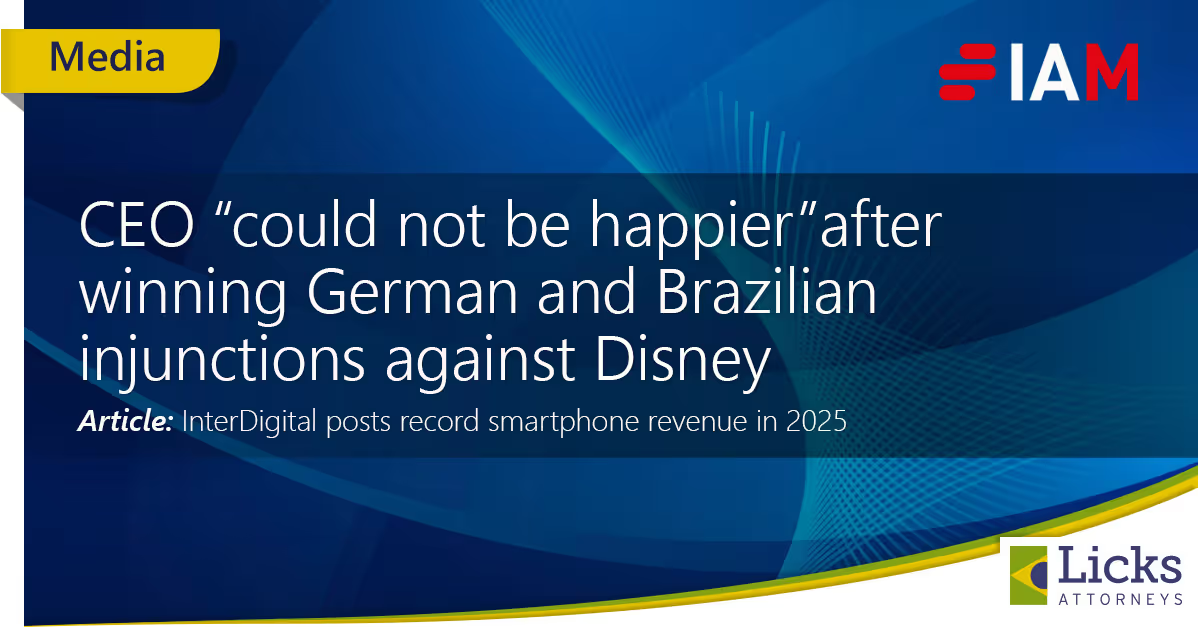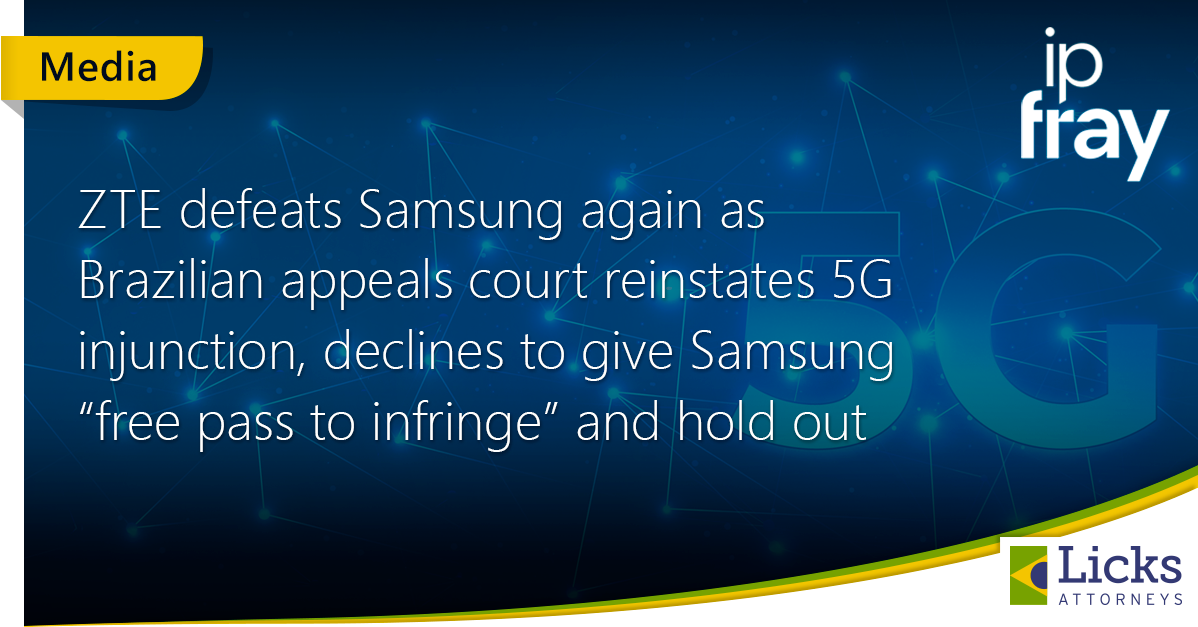A bright future for Brazil

Securing IP rights in the world’s 10th largest economy—with its high-growth industries, modernising patent office and vast consumer base—is a strategic imperative, say Cátia Gentil, Gislaine Zulli, and Otto Licks of Licks Attorneys.
Brazil, currently ranked as the world’s 10th largest economy with an estimated nominal GDP of US$2.2 trillion in 2024, represents approximately 2% of global GDP.
Beyond these figures, Brazil stands out as one of the world’s most attractive and dynamic markets across several key economic sectors, making it an increasingly vital jurisdiction for IP protection.
For international innovators and businesses, understanding and leveraging the Brazilian patent system is no longer optional but a strategic imperative.
The nation’s vast consumer base, growing middle class, and robust industrial landscape create fertile ground for technological advancement and market expansion.
Protecting inventions in Brazil is not merely about securing rights in a large economy; it is about establishing a foothold in a burgeoning innovation ecosystem that serves as a gateway to the broader Latin American market.
A deep dive into Brazil’s thriving sectors
Brazil’s economic dynamism is particularly evident in several highgrowth sectors, where innovation is paramount and IP rights are crucial for competitive advantage.
Information and communication technology (ICT): The Brazilian ICT market is a powerhouse.
According to Global Data consultancy, it was valued at $96 billion in 2023 and is projected to grow at a compounded annual growth rate (CAGR) of 17.11%, reaching $213 billion by 2028.
Data from the ICT macrosector, encompassing inhouse IT and telecommunications, shows an impact of approximately $142 billion in 2023, equivalent to 6.5% of Brazil’s GDP, as reported by the Brazilian Association of Information and Communication Technology and Digital Technology Companies (BRASSCOM).
This growth is fuelled by a digitally-savvy population and rapid technological adoption. Focusing specifically on smartphones, telecoms consultancy Teleco indicates that Brazil had 263.4 million mobile phone subscriptions in 2024, a figure that significantly outstrips its population of approximately 221 million people.
The deployment of the 5G network continues to expand rapidly, with this technology now used by approximately 20% of cell phones in Brazil.
Expectations for the coming years point to increased adoption of smartphone connections, a growing ecosystem of connected devices, and significant advancements in areas such as fintech, agritech, e-commerce, and artificial intelligence (AI), all of which are ripe for patentable innovation.
Pharmaceutical sector: Brazil is also a significant player in the global pharmaceutical market. Data from life sciences analytics company IQVIA reveals that Brazil is the world’s ninth largest pharmaceutical market, ranking even ahead of Canada.
The sector alone generated $31.7 billion in 2023, representing a 9.2% increase over the previous year. The consultancy estimates a CAGR for the Brazilian pharmaceutical market of between 9% and 10% through 2027.
According to consultancy firm Redirection, nearly 7% of Brazilian household consumption is spent on pharmaceutical products.
This positive outlook is driven by the country’s favourable macroeconomic conditions, an ageing population, the expansion of e-commerce, and increasing access to digital healthcare solutions.
The demand for innovative drugs, medical devices, and biotechnological solutions continues to surge, making patent protection in this sector particularly valuable.
Agribusiness: As a global agricultural superpower, Brazil’s agribusiness sector is a major driver of its economy and a hotbed of innovation.
Brazil is the world’s largest producer and exporter of several key commodities, including soybeans, coffee, and sugar.
This sector is highly dependent on technological advancements in areas such as biotechnology, precision agriculture, sustainable farming practices, and new crop varieties.
Research and development in these fields are robust, often involving collaborations between universities, research institutions, and private companies.
Protecting patents related to agricultural machinery, crop science, animal health, and food processing technologies is crucial for companies seeking to capitalise on Brazil’s leadership in this vital industry.
Renewable energy and biofuels: Brazil boasts one of the cleanest energy matrices in the world, largely due to its extensive hydropower resources and its pioneering role in biofuels, particularly ethanol.
The country is also rapidly expanding its investments in solar and wind energy.
This commitment to sustainable energy solutions fosters significant innovation in renewable energy technologies, energy storage, and advanced biofuels.
A landscape of growing certainty
Given such an attractive and diverse market, protecting inventions in Brazil becomes extremely important.
Fortunately, the Brazilian Patent and Trademark Office (BRPTO) has made significant strides in recent years, offering increasingly favourable conditions to both applicants and patent owners, whether national or foreign.
The BRPTO has maintained an overall PCT allowance rate of 82% over the past 24 months. This rate is even higher for inventions in specific high-tech sectors, reaching 93% for telecommunications and 95% for mechanics.
Furthermore, the patent invalidation rate after post-grant oppositions is remarkably low, at 22% in the last 24 months.
These positive figures provide greater legal certainty and predictability for patent owners exercising their rights in Brazil, signalling a robust and reliable system for securing valid patents.
Streamlined examination and political commitment
The era of significantly delayed decisions on patent applications in Brazil has largely become a thing of the past. Since 2019, the BRPTO has made substantial and progressive strides to optimise examination timelines.
The average examination time currently stands at three years and two months from the request for substantive examination, with ongoing efforts to further reduce this time.
Even more ambitiously, the BRPTO is committed to working with the Brazilian government to issue decisions on patent applications within just two years from the application’s entry date in Brazil by 2026.
Achieving this target will place the Brazilian PTO on par with the world’s leading patent authorities, significantly enhancing Brazil’s attractiveness as a patent filing destination.
This ambitious goal is supported by tangible actions: new examiners were hired in 2024 to bolster examination capacity.
The BRPTO is also developing innovative projects to help reduce examination time, such as outsourcing prior art searches and developing AI tools to assist in the substantive examination of patent applications, among other initiatives in its current Action Plan.
These actions aim to optimise the process, increase efficiency, and ensure the quality of the service provided to users.
Crucially, there is strong political support to achieve these goals.
Geraldo Alckmin, the Minister of Development, Industry, Commerce, and Services—overseeing the BRPTO—is also the vice president of the Republic.
This high-level endorsement underscores the national strategic importance placed on a modern, efficient, and reliable IP system.
Accelerated prosecution pathways
For applicants seeking even quicker decisions on their patent applications, the BRPTO offers a range of fast-track programmes designed to accelerate the examination process.
The office joined the Global Patent Prosecution Highway (PPH) in June 2024, a programme encompassing 27 other member countries. It also maintains bilateral PPH agreements with eight other foreign patent authorities.
This extensive network of 35 partners allows applicants to leverage positive examination results from participating offices, significantly reducing the average time from PPH requirement to patent application decision by six months.
This mechanism not only speeds up the process but also reduces prosecution costs and provides greater certainty.
Several administrative fast-track programmes are also available, catering to specific needs and priorities, such as Green Patents (for environmentally beneficial technologies), Start-up Entities (to support emerging businesses), and Alleged Infringement (for cases where a patent is already being infringed), among others.
The average time to issue decisions for patent applications through these programmes is 10 months, offering a rapid path to patent grant for strategic inventions.
As Brazil continues its trajectory as a global economic and innovation leader, securing robust patent protection is paramount.
With a modernising patent office, clear political commitment, and experienced legal partners like Licks Attorneys, Brazil offers a compelling and increasingly efficient venue for protecting your most valuable inventions.
Takeaways
- Brazil’s ICT market valued at $96bn in 2023
- BRPTO working to reduce patent examination time
- Fast-track initiatives available for strategic invention
Cátia Gentil is a former general coordinator of the Patent Cooperation Treaty (PCT) at the Brazilian PTO and a partner at Licks Attorneys. She can be contacted at: catia.gentil@lickslegal.com
Gislaine Zulli is a former representative of the patent directorate at the Brazilian PTO and head of data collection at Licks Attorneys. She can be contacted at: gislaine.zulli@lickslegal.com
Otto Licks is founding partner at Licks Attorneys. He can be contacted at: otto.licks@lickslegal.com






